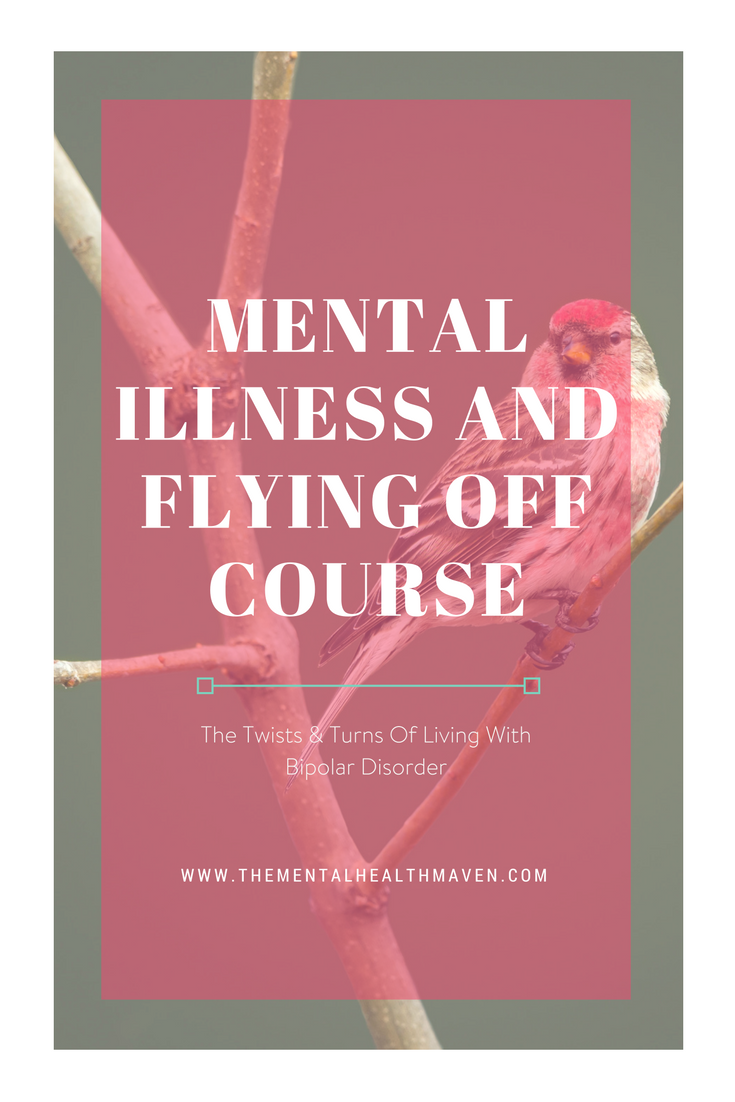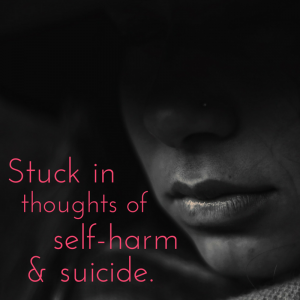
What it’s Like To Be Lost In Your Illness.
This afternoon my husband and I were enjoying a day of warm air and the smell of the smoked brisket streaming into the house from the back yard. We had left our back door open as we went in and out, back and forth, to check on the brisket. On one of my trips out the door, something caught my eye. There was a flutter between the blinds and the window. Its movement was soft like a moth but seemed a bit too large. I paused, and it fluttered again. I looked closer; it was a young finch batting its wings about our windowsill.
“There’s a bird.” It wasn’t a question, but I wasn’t a statement either. Mostly confusion? I mean, it was obvious how he got into the house, but it was a little curious how he made it behind the blinds themselves. The blinds planks are fairly heavy, and they were almost completely closed to keep out the hot sun. Yet, here this little bird was, stuck.
Somewhere along the way he had gotten off course. The wind caught him by surprise? He was chasing a bug perhaps. But there he was, in an unfamiliar and scary place. He could see the world that he’d always known just through the window, but there was no escape for him.

This got me thinking. How many times have I felt so stuck in my life because of my bipolar disorder? Stuck in thoughts of self-harm and suicide. Stuck pretending that my struggles were no worse than anyone else’s. Stuck in a tree of hopelessness without wings to fly away.
But, even when I was stuck, there was some part of me that could see the hope. Even when I was in a manic depressive state of being, I knew it was temporary. I just needed a little help to find the freedom from my disorder, however, short the freedom would be. Something that would keep me moving until the inevitable next episode.
It was only a few moments before my husband freed the bird to its rightful place. Luckily, more often than not I have a helping hand when I’m in the throes of a bipolar episode either manic or depression. I rely on many of my family members, a trusted therapist, support groups and my husband even before we got married.
Although this little bird had been trapped no more than a minute, a manic or depressive episode can last for weeks or even months at a time. One of the hardest things a person can do during these episodes is to ask for help. Although, many times the problem isn’t being able to ask for help, but the ability to recognize that you need help.

It’s times like these that we rely on our support team to recognize that we are about to fly off course. Only then will they be able to guide us out from behind the blinds if we get stuck. To help guide us back into the place that you belong most, the beautiful world around us.
Please talk to your support team and educate others on the signs of manic or depressive actions so they can help keep you on track. It will take all of us, working together to take control of mental illness.

For more ways to Stop the Stigma of Mental Illness, please subscribe at the top of this page.




Beautifully written. Thank you for using this platform to share your story and help break the stigma of mental health issues.
Thank you for your support, Kate! xo, Andrea
Wow, so well written and really touched a nerve. I suffered from a mental illness whilst my kids were very young . It was tough but i feel like i am in a stronger place now because of it
Thank you for your kind words. Mental illness, no matter which kind you have, really tests you and because of the tests we become stronger.
Thank you again!
xo, Andrea
Thanks for sharing! I’m glad to see more people talking about mental health….
Thank you for your support!
It’s a real plersuae to find someone who can think like that
Thank you, Kayden! I’m so happy you enjoyed it. xo, Andrea